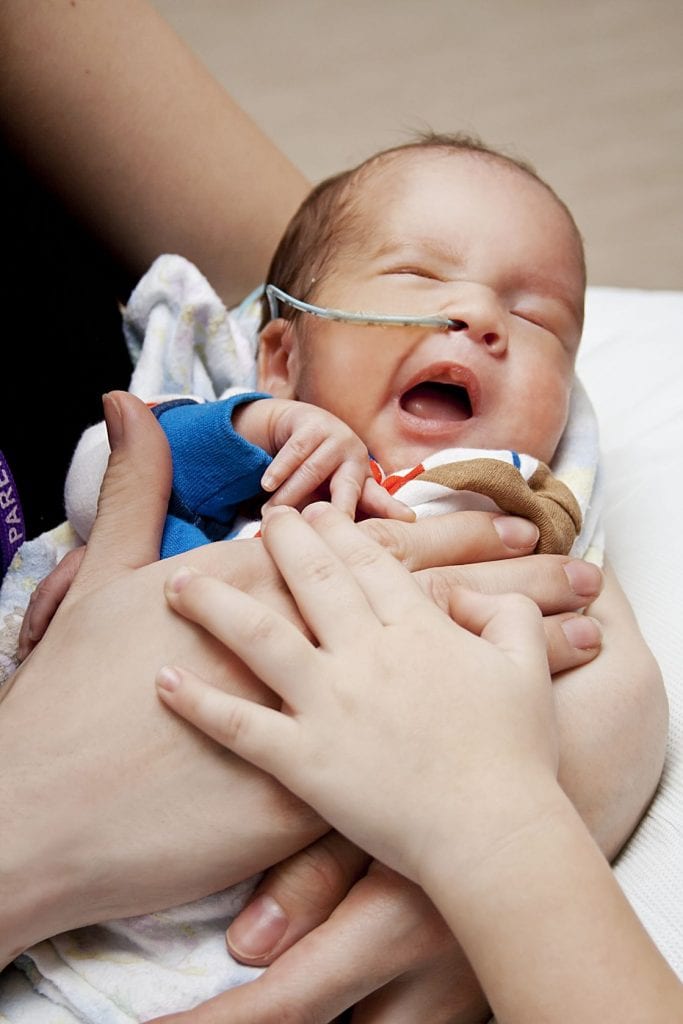Should Your NICU Baby Take Acid-Suppressing Medication?
As many as 1 in 4 babies in the NICU may be receiving an acid-suppressing medication, and may even continue to take them after leaving the hospital. However, researchers at Nationwide Children’s Hospital are warning against the risks in the absence of testing and they’re asking parents to speak up.
“There’s actually little evidence that acid suppression medication helps in the NICU at all,” says neonatologist Jonathan L. Slaughter, MD, MPH, lead author of the study in Pediatrics. “Parents are right to ask questions and voice concerns about starting the drugs or about the timetable for stopping. [They] should not be afraid to ask about evidence for the medications working or about possible side effects.”
Some of the medication used to treat NICU infants with GERD (gastroesophageal reflux disease); congenital heart disease; and ear, nose and throat conditions may be doing more harm than good. These medications, used to reduce stomach acid, were originally approved by the FDA for use in adults and older kids and have been associated with infections and increased risk of death in babies.
“It’s encouraging that doctors are starting to pay attention to the warnings and decrease usage,” Dr. Slaughter said. “In the small premature babies who are prescribed acid suppressive medications, doctors are waiting longer, until they are a little older. That’s promising. But I think the numbers should be declining faster,” he said.
What’s your gut telling you?
How you give birth and what you feed your baby can have a major influence on his future health, say experts in JAMA Pediatrics. At six weeks old, breastfed babies who were born vaginally had dramatically different “gut” bacteria when compared to those fed formula (or a combination of formula and breastmilk) and born via cesarean.
Cesarean birth is linked to increased obesity and asthma risks as well as type 1 diabetes risks later in life. Breastfeeding can reduce asthma, obesity and metabolic syndrome risks. It also reduces the risks of infection in babies.
Experts believe a baby’s exposure to microflora during vaginal birth is related to healthy microbiome patterns in infants, but how this happens and how it protects a baby’s health remains unclear.
FURTHER READING:
Making Your Home Comfortable for Baby
Steps After Bringing Baby Home
5 Tips in Caring for Late Preterm Infants

Comments are closed.